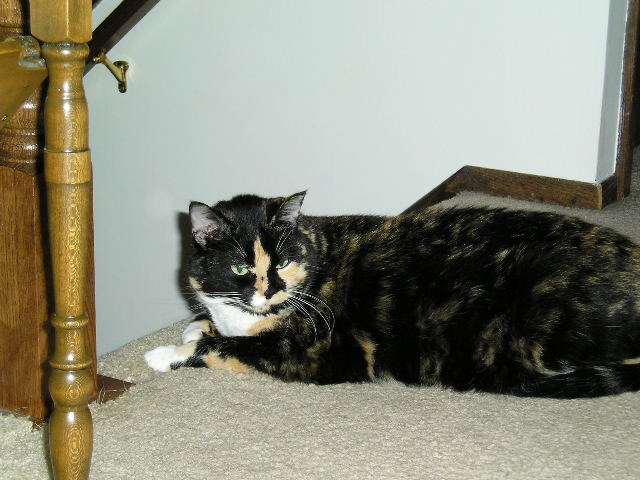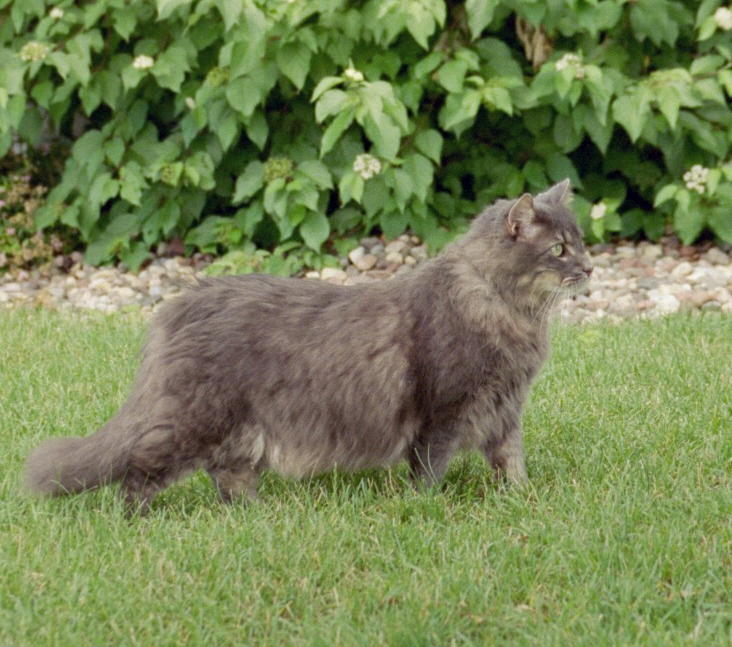
Cat
Cats, like dogs, are for the most part domesticated and found wherever humans are. There is a wild tabby-like cat in Scotland, but otherwise, the only other feral cats are mostly those that have reverted from domestication. Anyone who has spent any time around cats knows that they can be very solitary animals. The evoke the spirit of independence, cleverness, and of course, curiosity.
Cats have been both feared and loved throughout history by many different cultures. Some Native Americans, for instance the Oglala, would not have anything to do with any felines because they believed that cats had powerful magic and the ability to curse people. However, the Egyptians had great reverence for cats. They had multiple cat goddesses, including Bast, Sekmet (goddess with the head of a lioness), and Mafdet (goddess having come before Bast, who represented feral Egyptian cats). Each of these gods is female, which supports the association many have between cats and women. Cats are also associated with female medicine. Cats were domesticated in Egypt around 2100 BCE for the purpose of hunting.
The Celts also had a fondness for felines, associating them with their goddess Brighid. In this case, cats were representative of friends and companions, much like dogs are thought of. The Celts saw certain qualities in cats, like sensitivity and stealth, and attempted to copy them. Cats are strongly associated with magic, and appropriately, Druidic priests would use cat magic so that they would be able to cross between the spiritual and physical worlds.
 There were societies like the Oglala who weren’t so fond of cats. Christianity turned these positive traditions with cats upside-down by connecting cats with Satan, witches, evil, and any other negative things that came to mind. Cats were seen as accomplices and often hung with their masters when convicted of heresy. The Pilgrims shared these opinions of cats when they came to the Americas, and thus our society has many superstitions about cats, for instance that black cats are unlucky or are ill omens. In Britain and Ireland, they believe black cats are actually lucky, even selling little black bog cat statues for good luck.
There were societies like the Oglala who weren’t so fond of cats. Christianity turned these positive traditions with cats upside-down by connecting cats with Satan, witches, evil, and any other negative things that came to mind. Cats were seen as accomplices and often hung with their masters when convicted of heresy. The Pilgrims shared these opinions of cats when they came to the Americas, and thus our society has many superstitions about cats, for instance that black cats are unlucky or are ill omens. In Britain and Ireland, they believe black cats are actually lucky, even selling little black bog cat statues for good luck.
As for symbolism, cats are symbolic of rebirth and resurrection, per their nine lives. Because they are nocturnal, they are also associated with darkness. Darkness often goes with fear, the unconscious, and things that are hidden. Cats are also symbols of mystery and magic, as aforementioned, but also unpredictability and even healing.
Information from Ted Andrews's Animal-Speak, Jessica Dawn Palmer's Animal Wisdom, and Steven D. Farmer's Power Animals.

